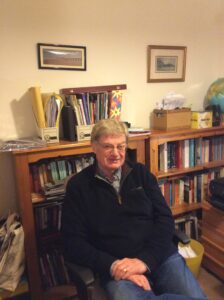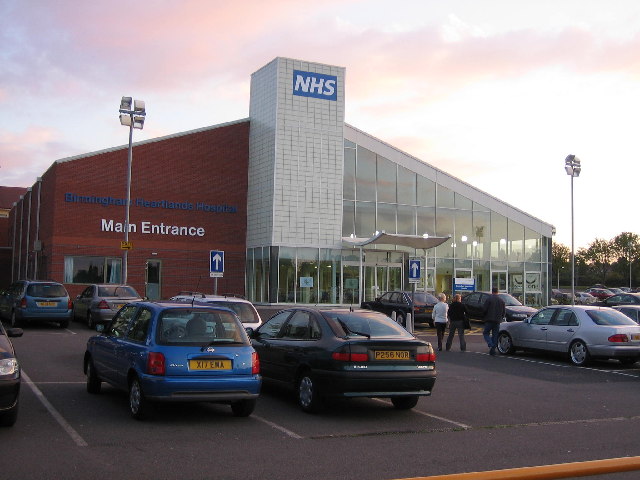12 November 2020
View from the Cotswolds
Doctors and nurses: when will they ever learn?
By Paul Branch
 Last week just before Lockdown#2, four elderly gentlemen met to share a meal and a drink. They were all former professionals who had known each other for some time and enjoyed the sort of discussions that blend nicely with dinner. Eventually the conversation got round to reminiscing about their former jobs – Peter had been a lawyer, John a GP, Paul a physicist and engineer of sorts, and Richard had been chairman of the local Conservative party – and then to the question of which was the oldest profession.
Last week just before Lockdown#2, four elderly gentlemen met to share a meal and a drink. They were all former professionals who had known each other for some time and enjoyed the sort of discussions that blend nicely with dinner. Eventually the conversation got round to reminiscing about their former jobs – Peter had been a lawyer, John a GP, Paul a physicist and engineer of sorts, and Richard had been chairman of the local Conservative party – and then to the question of which was the oldest profession.
Peter immediately suggested it had to be Law, citing the early episode from the Book of Genesis 4:1-18 in which Cain killed his brother Abel. In such circumstances there would have been a subsequent judicial investigation and trial, obviously involving lawyers who must therefore comprise the oldest profession.
There was some sage nodding around the table at this, but then John the doctor presented his argument, also from the Old Testament but from the even earlier account in Genesis 2:18-24 of Cain and Abel’s parents, and specifically the formation of Eve from one of Adam’s ribs. Clearly this would have necessitated a complex surgical procedure requiring post-operative care at which doctors would have been present, so theirs must be the oldest profession.
Again some vague mutterings of agreement, cut short by Paul the physicist who piped up with the counter that, after the first spark of creation, scientists and engineers had to sort out the resulting chaos, thus proving that scientists, and in particular physicists, must surely be the oldest profession.
Much reluctant mumbled assent from two of the other participants, until Richard the ex-politico who had said very little until then asked quietly: “And who do you imagine was responsible for all that chaos to start with?” At which the penny finally dropped and they all agreed that politicians were indeed the oldest profession.
It looks like the propensity for chaos in politics is alive and well, on both sides of the Atlantic, but no doubt there will be plenty said by others as the lights start to go out on the Trump cabaret so let’s stay closer to home. The hurried announcement of England’s second lockdown which Boris had said he didn’t want was confusing enough with the devolved patchwork of different conditions and timings now covering our once United Kingdom. The recurring inexorable rising tide of Covid with its dire consequences and implications for swathes of the population and their jobs is something that possibly might have been managed more effectively, although judging by the rest of the world it’s doubtful that the second wave could have been avoided completely. Unexpectedly I found myself actually impressed for once at the way Boris handled his news conference, allowing the scientists to kick off with disappointingly poor presentation materials but then himself in contrast delivering the main lockdown message quite coherently, authoritatively and without recourse to childish fairground idioms. He did revert to type with the introduction of yet another miraculous world-beating crisis-solving testing system, but we can let that pass for now.
We are again experiencing rapid rises in viral infections, hospitalisations and deaths, even if the rate of increase is diminishing, and of course we fervently hope that the new lockdown will have quick positive impacts. But for now we are back to the situation of more pressure on NHS staff and facilities with treatment of other medical issues being deferred, and the sheer lack of doctors and nurses to cope with it all including the imminent arrival of this year’s ‘flu strain.
The shortage of nurses has been apparent for some time – 50,000 new recruits were promised, the government claims to have managed 13,000 so far, but how many of these are fully trained yet? Anecdotal evidence suggests that more are leaving the medical profession, doctors and care staff as well as nurses, as never before, raw from the experiences of the first wave of infections earlier in the year. I don’t think we’re inundated with applications from the EU. And it could be that some of the aspiring immigrants holed up in sad and desperate camps across the Channel and beyond might have some of the qualifications we’re looking for, but of course they wouldn’t be welcomed warmly by Priti, let alone Nigel.
The reasons for our continuing shameful shortage of medical specialists seem many and varied. Experiences from last time have left many of them in poor health physically from Covid, as well as mentally from the excruciating long hours, stress from trying to combine family life with unforgiving shifts tending the sick and dying, lack of PPE (let’s hope all those contracts with relatively inexperienced suppliers do the trick), and just sheer frustration with management at various levels getting in the way of allowing them to do the job they signed up for and to which they are committed. The management styles of Boris and young Matt haven’t helped much either, combined with the rather ironic situation presented by former Health Minister Jeremy Hunt, now Chair of the Health and Social Care select committee in Parliament, who seemingly has no compunction in blaming Hancock for everything, including stuff that he might reasonably have dealt with during his own term of office. Nor is he remembered with much affection after his run-in with junior doctors.
There is good news of course in the shape of more acute treatment facilities such as the Nightingale hospitals, better medications and processes for treating Covid patients with less recourse to the dreaded ventilator, and we have the real prospect of at least one properly trialled and effective vaccine becoming widely available relatively soon. But despite all the fine words and good intentions to learn lessons from last time, many in the medical professions just see the same old same old. And what must really rankle is the lack of a fairly basic commodity – no tangible form of appreciation from government. We clapped and we sang every Thursday evening back then, we put grateful posters in windows thanking the NHS (and indeed all key workers), Boris sounded especially grateful in his speeches, even allowing emotion to creep in after his own personal experience, and he promised true rewards for their dedication and bravery. The net result: 0. No overtime pay for all those extra shifts, no pay rise, no tangible recognition, everything must follow due process – thank heavens NHS staff didn’t adopt that attitude and clock off when they wanted to go home.
We knew a second wave of Covid would arrive. The government promised to bolster and protect the NHS and its staff. We knew the dangers of staff shortages. We now have a demoralised and understaffed NHS. Most of us stopped playing at doctors and nurses when we grew up – when will our government ever learn to stop playing games?


